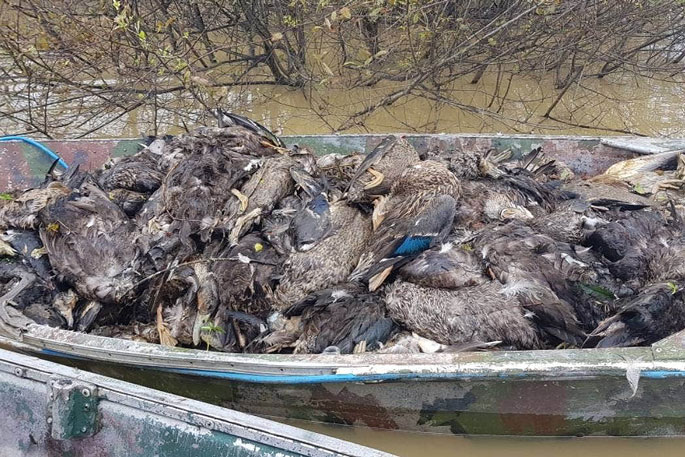Just ahead of duck shooting season starting next month, local hapū have declared a month-long rāhui (ban) on gathering birds and fish from north Waikato's polluted Whangamarino wetland, a popular site with hunters.
At this stage, it's unclear whether the rāhui – supported by Waikato-Tainui – will affect the whole of the wetland or five specific areas.
Ngāti Naho hapū claims negotiator Haydn Solomon says the rāhui, formally announced Tuesday at a ceremony in Meremere, follows ongoing significant contamination of Lake Waikare by non-compliant discharges of wastewater from Waikato District Council's Te Kauwhata wastewater plant.
The lake's outlets flow directly to the Waikato River and into the wetland.
'When they open the wetlands [to release water to the river] it's like flushing the toilet.
'It's a breach of our river settlement,” he says, a reference to the Crown-iwi co-governance arrangement for the Waikato River.
Haydn believes the discharges contributed to the current situation which has seen thousands of wetland birds die from avian botulism, as well as fish deaths.
The rāhui comes just ahead of the new duck shooting season starting on May 6 locally.
Fish and Game's Auckland-Waikato chief executive Ben Wilson says he understands from a Waikato-Tainui media release that duck shooting won't be affected. He has only just found out about it.
'We'll see how it goes.”
But an iwi spokesperson says the rāhui will apply to five specific areas. 'Duck shooting, everything, is included.”
He expects the Department of Conservation will be putting out information about the rāhui and erecting signs in areas where it applies.
Hadyn says talks are due with DOC and the regional council about rāhui enforcement.
On the rāhui only applying to five areas, he says: 'We would prefer the whole [wetland].”
This will be discussed with Waikato-Tainui.
He says the rāhui's timing isn't 'tactical” to ramp up pressure at duck shooting time but reflects frustration at the district council.
Hadyn acknowledges the rāhui has no legal force. 'It's one in spirit.”
But Ngāti Naho plans to talk to council officials and the Department of Conservation about enforcing it.
The goal is protecting people's health.
The rāhui – and its possible extension – would be re-considered next month.
The chairperson of Waikato-Tainui's Te Arataura executive Tukoroirangi Morgan strongly supports the rāhui.
'This is New Zealand's largest wetland severely impacted by toxins.”
He feels people taking birds and fish at this time would 'foolish”.
'Having the rāhui over Whangamarino is ... the first step towards proceeding with a more restorative approach.”
Tukoroirangi also feels the situation breaches the Crown-iwi settlement for the river and its catchment.
The regional council says it will work with mana whenua on compliance with the rāhui.
It acknowledged the district council had been served with a notice in 2019 over non-compliant discharges related to nitrogen, phosphorous and the bacterium E. coli.
The Te Kauwhata plant is being rebuilt to help make necessary improvements and other measures have been taken to address issues.
But 'the abatement notice will remain in place until the plant is fully compliant with the consent conditions”, says the regional council.
A district council statement says the Te Kauwhata plant upgrade, being done in consultation with Waikato-Tainui and mana whenua, is due to finish by the end of the year.
”While non-compliance is always a concern, council is taking active steps to address the issue,” says a statement.
On the council's improvements, Hadyn says: 'This should have been dealt with years ago. It's kind of the ambulance at the bottom of the cliff.”



1 comment
Never mind the shooting...
Posted on 13-04-2023 13:26 | By morepork
... How can a local Council have let this pollution happen? Heads should roll... but they won't. The polluters should be stopped immediately and if that is not possible (wastewater treatment is inadequate or under-invested) then the necessary engineering should be planned immediately. It shouldn't take a crisis like this to spotlight bad practices.
Leave a Comment
You must be logged in to make a comment.